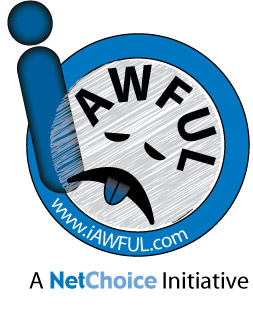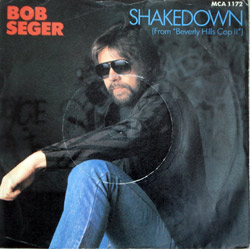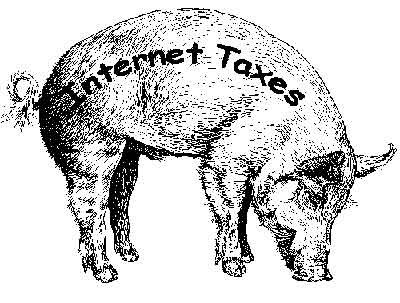Check out today’s Wall Street Journal editorial on the affiliate nexus tax that North Carolina is considering — aptly titled Tarheels vs. the Internet. This comes on the heels (pun intended) of news that Amazon will terminate its affiliates in North Carolina. It also talks about the tickets tax, which is blatantly in violation of the Internet Tax Freedom Act because it only applies to the Internet resale of tickets.
Phase three of the White House’s Open Government Initiative ends this Sunday, and with it a tripartite experiment on receiving public comment about how to make government more open.
This is of course an important and monumental milestone. Never before have we seen the intersection of technology and public input to guide a governmental process on the front-end. Sure, we’ve been able to sound-off via email to our legislators when we support or oppose a bill, or file comments on a rulemaking–but there’s never been a coordinated, proactive solicitation for general public input. That’s why the Open Government Initiative is important.
It’s certainly One of Good Intent. That the process was itself an open process is a mild achievement, given that the theme was how to make government more open. But transparency is hard to achieve even with the best intentions. It may be that by opening the floodgates to public comment, we’ve increased the quantity of input, but not the quality.
A New York Times article from earlier this week raises the notion that soliciting comments isn’t easy, or maybe even productive. From the article:
[The White House] got an earful — on legalizing marijuana, revealing U.F.O. secrets and verifying Mr. Obama’s birth certificate to prove he was really born in the United States and thus eligible to be president.
Now, it’s easy to pick out a few extreme examples, but see it for yourself–the vast majority of the comments are off-topic, and some are even offensive or just flat out bizarre. Continue reading →
 Come one, come all. ACT will be hosting a lunch event next Tuesday (June 23) at noon on privacy, free software, and government procurement.
Come one, come all. ACT will be hosting a lunch event next Tuesday (June 23) at noon on privacy, free software, and government procurement.
We’ll discuss “free” software (ie. no license fees, free as in beer). It’s a nuanced take on some of what Chris Anderson will surely be talking about in his upcoming book on Free—where does the $ come from in software that we all use for free on the web, or that we download to our computer?
To answer this question, we’ll attempt to update traditional Total Cost of Ownership analysis for ad-based software and services. There’s a lot of discussion about privacy, security and sustainability considerations of cloud based solutions. In addition, the event will deal with skeptics who think that “free” means no business model at all. We’ll describe how free software and services are usually just one aspect of a larger enterprise geared toward expanding market penetration and increasing revenues. Mike Masnick described this in a recent Techdirt post.
I’m going to moderate, and our speakers will be Rob Atkinson at ITIF, Tom Schatz at CAGW, and Peter Corbett of iStrategyLabs.
We’ll be releasing a paper on all this, so come join us for lunch and a lively discussion–and best of all, it’s FREE!!
Further details are here.
 Welcome to the jungle
Welcome to the jungle
We take it day by day
If you want it you’re gonna bleed
But it’s the price you pay
Amazon.com announced yesterday that it won’t be paying the price of affiliate advertising in North Carolina if the state uses it to assert nexus for sales tax collection. It will stop using affiliates in the Tar Heel state, which is what Overstock did when New York considered the affiliate nexus approach.
States are wrong-headed when it comes to asserting tax nexus just because some companies use a web-based network of affiliates to help advertise their products. As I’ve discussed before, affiliates are more akin to in-state advertisers, not sales reps.
Furthermore, states that pass these affiliate nexus bills really end up hurting in-state companies that rely on Internet advertising. At a time when companies are struggling for ways to make money on the Internet, we think now is a particularly bad time to tax Internet marketing.
North Carolina should stay out of the affiliate tax jungle. It’s constitutionally messy, bad policy…and as Guns ‘N Roses mildly stated, it’ gonna bring you down – huh!
There’s a hearing going on as I write on a Louisiana bill (HB 569) that would create a new tax on the Internet bills of consumers, despite the fact that there’s a federal moratorium prohibiting it.
We just heard Attorney General James D. “Buddy” Caldwell say that this isn’t a “tax”, it’s a “fee.” Louisiana is taking an interesting approach – HB 569 would impose a tax of 15 cents per month on ISP subscribers that would go to preventing and prosecuting Internet-based crimes against children. AG Caldwell claims that it is merely a “usage fee” — the price we pay for using the Internet.
But the Internet Tax Freedom Act explicitly sought to prevent the imposition of a tax that simply used different terminology. The Act defines a tax as:
(i) any charge imposed by any governmental entity for the purpose of generating revenues for governmental purposes, and is not a fee imposed for a specific privilege, service, or benefit conferred; or
(ii) the imposition on a seller of an obligation to collect and to remit to a governmental entity any sales or use tax imposed on a buyer by a governmental entity.
Under this definition, a charge on Internet access is not like a fee imposed for recording a mortgage, for example. When you pay a recording fee, you pay for the costs you impose on the government for handling your transaction. If you were to pay a “usage fee” for law enforcement to deal with online safety, you’re paying for general services, something that law enforcement/government should be doing anyway to protect the public. Continue reading →
 Recent developments have the events ticket market going paperless (tickets) and creating a paper trail (via proposed legislation).
Recent developments have the events ticket market going paperless (tickets) and creating a paper trail (via proposed legislation).
First, there’s Ticketmaster’s efforts to push “paperless tickets” into greater use. On Monday the Wall Street Journal reported on how the upcoming Miley Cyrus (aka Hannah Montana) tour will sell only paperless tickets.
I’ve previously blogged about paperless tickets here, here and here and continue to maintain that they are not about consumer convenience. Why? Well, at the venue you have to present the credit card used to purchase the tickets, which means everybody in your party has to arrive at the same time. And if you can’t go you won’t be able to resell your tickets or even give them away. Ticketmaster won’t give you a refund, that’s for sure!
With paperless tickets, Ticketmaster says it is trying to stop scalping, but why? As yesterday’s Los Angeles Times opinion piece cogently argues:
Secondary markets are important. They help overcome the inefficiencies in primary markets, while giving purchasers a safety net. If “paperless” tickets are the only option for consumers, there will be no secondary market unless Ticketmaster provides one. That’s quite a power grab for a company that’s awaiting the Justice Department’s approval for a blockbuster merger (with Live Nation, the country’s leading concert promoter).
Continue reading →

Sometimes legislation is so bad, it’s awful! or iAWFUL (the Internet Advocates’ Watchlist for Ugly Laws).
I’m happy to announce that NetChoice just created a top ten list where we’ll keep track of the worst of the worst. iAWFUL identifies the 10 worst legislative and regulatory proposals targeted at the Internet. We’ll continually update to reflect the most immediate dangers, based on regulatory severity and likelihood of passage.
While misguided Internet legislation is nothing new, the threat that such legislation poses has increased dramatically. The latest breed of legislative proposals are among the most restrictive we’ve ever seen, and they can crop up anywhere, as state lawmakers increasingly take the lead.
Bad Internet bills unfortunately take many forms, but we see 4 broad categories:
1. Misguided efforts to ‘child-proof’ the Internet
New Jersey Social Networking Bill (A 3757) – What’s wrong? It turns social networking sites into social networking police. It requires social networking websites to promptly review user allegations of harassment and abusive language, and to provide a report of the result of any review “upon request” from the user (blog post here).
California Social Networking Bill (AB 632) – What’s wrong? It can be abused to stifle free speech. It should seem obvious that if you post a photo onto a social networking site, it’s a public image. California doesn’t think so, so it’s micromanaging website terms of service. It started as a tech mandate, and would have imposed civil liability on websites that failed to implement technologies that would prevent copying or saving of images. This bill was recently amended to require social networking websites to disclose to its users that uploaded photos can be copied without consent by persons who view the image. The definition of a “social networking Internet Web site” is broad, so this would apply to a large number of sites on the Internet (previous blog post here).
2. There’s a tax for that!
Continue reading →
The European Commission is a loose cannon when it comes to antitrust and competition law. It’s record $1.45 billion fine is emblematic of what the Commission just doesn’t get: there’s a difference, a difference that matters, between consumer and competitor harm.
EU Commissioner for Competition Neelie Kroes said otherwise: Intel had “used illegal anticompetitive practices to exclude its only competitor and reduce consumers’ choice — and the whole story is about consumers.”
No, the whole story is not about consumers, Ms. Kroes. It’s clear that the only harm that Intel has carried out is on it’s main rival AMD–and that’s called competition. Over at the ACT blog, my colleague Mark Blafkin has a good post that details the lack of consumer harm.
Here’s the main point–competition shouldn’t be illegal. But according to EU law, companies with a dominant position in the market have a legal duty to not eliminate competition, while in the U.S. only monopoly power imparts this duty. U.S. culture, reflected (partially) in antitrust law, holds that the competitive process of driving other companies out of business makes an economy efficient and innovative.
 Today California is holding a hearing on a bill that would require social networking websites to implement certain technologies and procedures to remove photo images upon notice from a user.
Today California is holding a hearing on a bill that would require social networking websites to implement certain technologies and procedures to remove photo images upon notice from a user.
AB 632 would force a broad range of websites to establish mechanisms to remove photos, videos, and even caricature or satiric images of its users. As we know, many if not most online sites are incorporating some sort of social networking functionality. This bill would therefore encompass a number of community events, news, sports, and travel sites in addition to more commonly regarded social networking sites.
Apparently the bill’s sponsor is upset that people can right click on photos, and save them to their computer or email to friends. In addition to takedown mechanisms, she wants websites to disclose to users that uploaded photos may be copied by persons who view the image.
As I detailed in a NetChoice letter, the takedown component is most troubling. It would force thousands of websites to redesign their sites to encompass a number of considerations:
- A specific image must be readily identifiable on a specific page—this is a non-trivial exercise. Photos may be buried deeply in a user’s album containing thousands of other images, and URLs of particular pages often change.
- Sites must determine whether an image is actually of the particular user requesting removal. Otherwise, users could request removal of a number of photos that bear their likeness, but do not actually include them, for a number of political, religious, or abusive reasons. Yet, even trained experts have difficulty identifying persons in photos, as images are affected by lighting, clothing, and changes in hair style or makeup.
- Removal must respect copyright law. Websites would face potential lawsuits from copyright owners if removing their copyrighted images negatively impacted them.
- How to deal with group photos, where the user is just one of many people in the image?
Continue reading →
 Watch out for a bill that will be heard in committee today in the North Carolina General Assembly that could be the first example (that I know) of a tax that on its face discriminates against the Internet. Senate Bill 99 singles-out the Internet ticket resale market for a “privilege tax”, and because it only applies to Internet sales, it violates the federal moratorium on “multiple or discriminatory taxes on electronic commerce.”
Watch out for a bill that will be heard in committee today in the North Carolina General Assembly that could be the first example (that I know) of a tax that on its face discriminates against the Internet. Senate Bill 99 singles-out the Internet ticket resale market for a “privilege tax”, and because it only applies to Internet sales, it violates the federal moratorium on “multiple or discriminatory taxes on electronic commerce.”
The Internet Tax Freedom Act Amendment Acts of 2007 (Public Law No: 110-108) provides a moratorium through November 1, 2014 that bars federal, state and local governments from imposing discriminatory Internet-only taxes such as bit taxes, bandwidth taxes, and email taxes.
It also prohibits the sort of prima facie discrimination exhibited by SB 99—“Reselling or offering to resell admission tickets on the Internet…”). Because this tax applies to revenues received from Internet transactions but not to offline sales, it clearly violates the Internet Tax Freedom Act.
Here’s where it gets even more interesting — this tax could even be an example of a “multiple” tax. SB 99 imposes a privilege tax on Internet ticket sales that amounts to double taxation. Income earned ticket reselling is already taxed. Companies and individuals that earn revenue from reselling tickets already pay income tax. Moreover, the same ticket could be resold numerous times, resulting in multiple taxation of the same increment over face value.
There are other problems with SB 99 that we lay out in our NetChoice letter, but federal law seems to be clearly against the bill.

 Come one, come all. ACT will be hosting a lunch event next Tuesday (June 23) at noon on privacy, free software, and government procurement.
Come one, come all. ACT will be hosting a lunch event next Tuesday (June 23) at noon on privacy, free software, and government procurement. Welcome to the jungle
Welcome to the jungle Recent developments have the events ticket market going paperless (tickets) and creating a paper trail (via proposed legislation).
Recent developments have the events ticket market going paperless (tickets) and creating a paper trail (via proposed legislation).
 Today California is holding a hearing on a bill that would require social networking websites to implement certain technologies and procedures to remove photo images upon notice from a user.
Today California is holding a hearing on a bill that would require social networking websites to implement certain technologies and procedures to remove photo images upon notice from a user. Watch out for a bill that will be heard in committee today in the North Carolina General Assembly that could be the first example (that I know) of a tax that on its face discriminates against the Internet.
Watch out for a bill that will be heard in committee today in the North Carolina General Assembly that could be the first example (that I know) of a tax that on its face discriminates against the Internet.  The Technology Liberation Front is the tech policy blog dedicated to keeping politicians' hands off the 'net and everything else related to technology.
The Technology Liberation Front is the tech policy blog dedicated to keeping politicians' hands off the 'net and everything else related to technology.